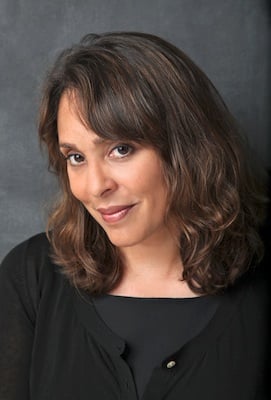
If last night’s event at the Library of Congress is anything to go by,
Natasha Trethewey’s tenure as US poet laureate is going to be extraordinarily popular. The 485-seat
Coolidge Auditorium was filled to capacity, with latecomers shuffled into a room to
watch Trethewey’s inaugural reading on a TV screen, and when the elegant 46-year-old
entered from backstage, she was met with a standing ovation.
“What you just did honors poetry more than it honors me” was Trethewey’s response
to the applause.
The poet, who won a Pulitzer Prize in 2007 for
Native Guard—researched in large part at the Library of Congress—is a notable choice for poet
laureate for many reasons: She’s mid-career, as opposed to her predecessor,
Philip Levine, who took on the role in his eighties. She’s the first African-American to be named
to the position since
Rita Dove in 1993. And she’s the first poet laureate to hail from the South since
Robert Penn Warren in the 1940s.
Trethewey’s poetry is also deeply personal, incorporating her own life story as the
daughter of an African-American mother and a white father whose marriage was illegal
in the state of Mississippi at the time. She has, Librarian of Congress Dr.
James Billington said last night, “a voice that not only expands the position of [poetry], but helps
us better understand ourselves. Her poems tell stories of loss and reckoning, both
personal and historical.”
Trethewey chose to read from
Thrall, she said, because it’s “very much a book about knowledge, so it seems that it makes
sense to read it here.” In a review this week, the
Washington Post described it as “a powerful, beautifully crafted book,” and concluded that Trethewey
will inspire many, as well as “advance, in some measure, the national dialogue about
race as she promotes the art of poetry.”
Thrall is dedicated to Trethewey’s father, a poet himself and an English professor at Hollins
University in Virginia. The first poem she read, “Elegy,” describes a fishing trip
they took together:
“You kept casting
your line, and when it did not come back
empty, it was tangled with mine. Some nights,
dreaming, I step again into the small boat
that carried us out and watch the bank receding—
my back to where I know we are headed.”
As she read from different poems, briefly explaining where they came from, the audience
listened intently, audibly murmuring at some points when a line was particularly resonant.
Trethewey also described a trip she took with her father to Monticello, inspired by
a trip they’d taken years earlier, and how now the children Thomas Jefferson fathered
with his slave, Sally Hemings, are mentioned as a part of the exhibit. Her poem, “Enlightenment,”
was one of two concluding the reading.
“I’ve made a joke of it, this history
that links us—white father, black daughter—
even as it renders us other to each other.”
At the reading’s end, Trethewey was met with another standing ovation.















